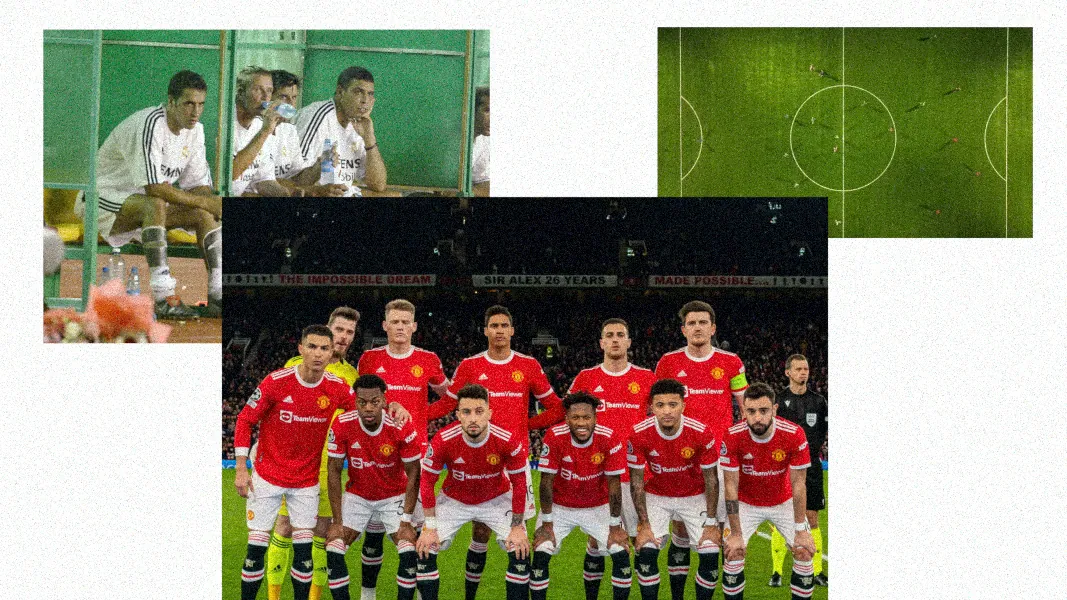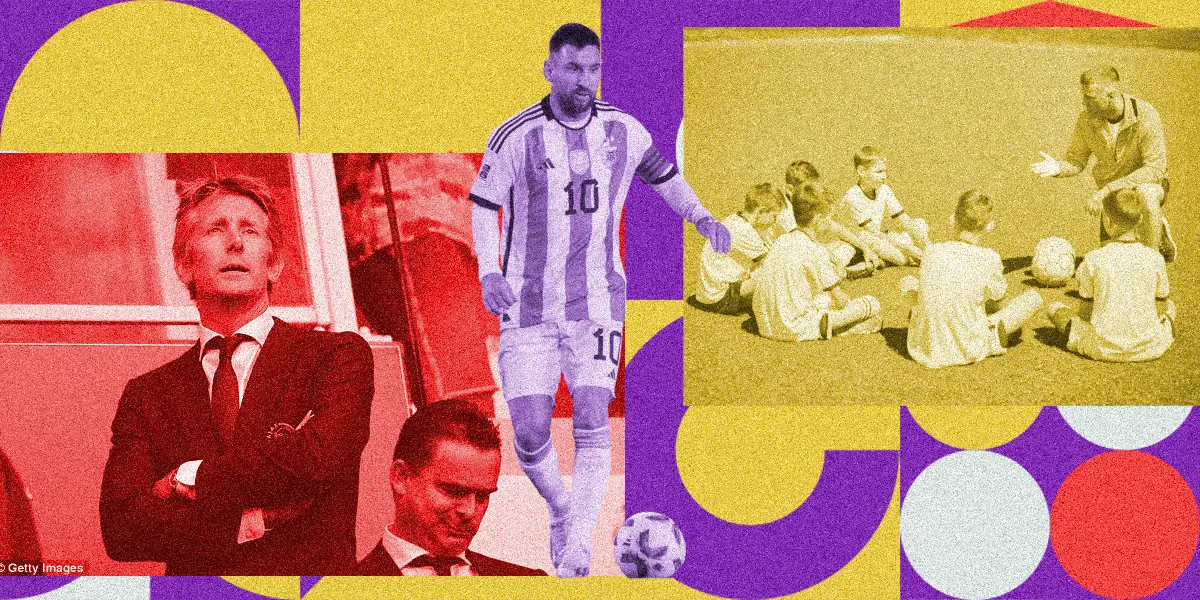Soccer, often called “the beautiful game,” holds a captivating allure for beginners who step onto the field. If you’re curious about whether soccer is hard to learn, you’re not alone.
This article delves into the world of soccer, addressing the common question of its difficulty for newcomers. By exploring the fundamentals, skills, and joys of the game, I aim to provide a clear picture of what it takes to get started on your soccer journey.
Whether you’re a complete novice or have a hint of experience, understanding the challenge of learning soccer is the first step towards embracing its excitement.
Breaking Down the Basics of Soccer
To embark on your soccer adventure, it’s crucial to grasp the foundational elements that form the heart of the game. These basics serve as your compass on the field, guiding you through the exhilarating world of soccer.
Understanding the Objective
At its core, soccer is a sport where two teams strive to score goals by maneuvering the ball into the opposing team’s net. The team with the most goals at the end of the match emerges victorious. This straightforward objective fuels the dynamic and fast-paced nature of the game.
Key Rules and Regulations
Every game has its rules, and soccer is no exception. Familiarize yourself with fundamental rules, such as offsides, fouls, and the role of the goalkeeper. Understanding these rules ensures a fair and enjoyable experience for all players and contributes to the flow of the match.
Essential Equipment for Beginners
Soccer doesn’t require a complicated set of gear. All you need are comfortable athletic clothes, soccer cleats for better traction, and a soccer ball. As a beginner, focus on selecting the right ball size for your age group to facilitate learning and skill development.
Fundamentals of Skill Development in Soccer
Becoming a skillful soccer player involves honing specific techniques that empower you on the field. By focusing on these fundamental skills, you’ll enhance your ability to control the ball, work as a team, and contribute to the game’s flow.
Ball Control and Dribbling Techniques
The ability to control the ball with precision is a cornerstone of soccer. Learn to use both feet for passing and dribbling, and practice touches that allow you to maneuver the ball effortlessly.
Dribbling, which involves moving the ball while maintaining control, is an art that demands practice and patience.
Passing and Receiving Skills
Soccer is a team sport that thrives on effective passing. Sharpen your passing accuracy and power to swiftly move the ball between teammates.
Equally important is learning how to receive passes gracefully, positioning your body to maintain possession and continue the game’s momentum.
Shooting and Goal-Scoring Strategies
Scoring a goal is the ultimate achievement in soccer. Practice shooting techniques to unleash powerful and accurate shots on goal. Consider different strategies, such as aiming for corners or using finesse shots, to outwit goalkeepers and find the back of the net.
Physical Demands of Soccer and Fitness
Soccer is a sport that demands a blend of athleticism and endurance. Developing your physical capabilities is essential to excel on the field and enjoy the fast-paced nature of the game.
Cardiovascular Endurance in Soccer
Soccer involves continuous movement, from sprinting to jogging, for the duration of the match. Building cardiovascular endurance through activities like running or interval training enhances your ability to keep up with the game’s demands and maintain energy levels.
Building Agility and Coordination
Swift changes in direction and quick footwork are integral to soccer. Agility drills, such as ladder exercises or cone drills, help improve your ability to change direction rapidly and navigate around opponents. Coordinating your movements with ball control is crucial for both offense and defense.
Developing Strength and Stamina
Soccer requires strength for challenges such as shielding the ball from opponents or holding your ground in tackles. Incorporate strength training exercises like squats, lunges, and core work to build functional strength. Additionally, stamina training, such as endurance running, prepares you for the physically demanding aspects of the game.
Tactical Understanding for Novices
Soccer is more than just a game of individual skills—it’s a symphony of coordinated teamwork and strategic play. Developing a basic tactical understanding will help you navigate the field effectively and contribute to your team’s success.
Positional Awareness on the Field
Each player on the soccer field has a specific role and position. Understanding where you should be positioned during different phases of the game—offense, defense, and transitions—allows you to make informed decisions and support your teammates.
Basic Soccer Formations and Their Functions
Soccer teams often adopt formations that dictate player positions and movements. Common formations, like the 4-4-2 or 4-3-3, have distinct strengths and weaknesses. Learning about these formations and their strategic implications empowers you to adapt your playstyle and contribute strategically to the team’s game plan.
Teamwork and Communication Essentials
Effective communication and teamwork are the glue that holds a soccer team together. Simple gestures, like calling for the ball or signaling your intent to a teammate, enhance coordination and minimize confusion on the field. Understanding when to pass, when to support, and when to press are essential components of effective teamwork.
Overcoming Challenges When Learning Soccer
Embarking on a soccer journey brings its fair share of challenges, but with the right mindset and approach, you can navigate these hurdles and emerge stronger and more skilled.
How to Deal with Initial Frustrations
It’s natural to face frustrations as you learn and practice new skills. Embrace these challenges as opportunities for growth. Remember that every successful player started as a beginner and faced similar struggles. Patience and persistence will lead to progress.
Learning from Mistakes and Setbacks
Mistakes are stepping stones to improvement. When you make errors, whether it’s a misplaced pass or a missed opportunity, view them as chances to learn. Analyze what went wrong, adjust your approach, and apply the lessons to your future gameplay.
Embracing a Growth Mindset in Soccer
Cultivate a growth mindset, where you believe that your abilities can be developed through effort and dedication. Embrace challenges as a chance to stretch your skills and welcome feedback as a valuable tool for improvement. With this mindset, setbacks become stepping stones toward reaching your soccer goals.
Benefits and Enjoyment of Playing Soccer
Engaging in soccer offers a host of benefits that extend beyond the field. As you immerse yourself in the game, you’ll discover the joy of improvement, the bonds of camaraderie, and the boost to your confidence.
The Thrill of Improvement
Soccer is a sport that rewards effort and practice. As you dedicate time to honing your skills, you’ll experience the exhilaration of progress. Every accurate pass, skillful dribble, and well-timed tackle becomes a testament to your growth and determination.
Building Friendships and Camaraderie

Soccer fosters connections that extend beyond the final whistle. Working together with teammates, sharing victories and setbacks, creates a unique camaraderie. Friendships forged on the field often endure off the field, enriching your social life and creating lasting memories.
Boosting Confidence Through Soccer
I have personally experienced the confidence boost that soccer provides. Mastering new skills and contributing to your team’s success bolsters your self-confidence. The ability to execute techniques you’ve practiced and the recognition of your efforts by teammates and coaches enhance your sense of accomplishment and self-worth.
FAQs
Soccer can present challenges, especially for beginners, but with practice and determination, it becomes progressively manageable. Like any skill, soccer requires effort and commitment to improve.
Becoming proficient at soccer demands consistent practice and dedication. While it may seem challenging initially, gradual improvement and the enjoyment of the game make the journey worthwhile.
No, it’s never too late to start learning soccer. Many players begin around the age of 11 or even later and still make significant progress. With proper coaching, practice, and enthusiasm, you can develop your skills and enjoy the sport.
The time it takes to become good at soccer varies for each individual. Regular practice over several years, often totaling hundreds of hours, is typically required to achieve a high level of proficiency.
Yes, anyone can get good at soccer with the right mindset, dedication, and training. While natural talent can play a role, hard work, determination, and a willingness to learn are often more significant factors in achieving success in soccer.
Final Thoughts
In conclusion, while soccer presents challenges, it is not insurmountably difficult for beginners to learn. Like any endeavor, it requires patience, practice, and a willingness to embrace the learning process.
So, if you’re a beginner curious about learning soccer, take heart—while it may have its moments of difficulty, the rewards and satisfaction that come with progressing in this beautiful game make it a journey well worth embarking upon.











